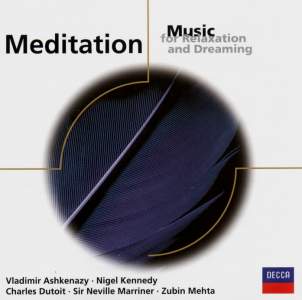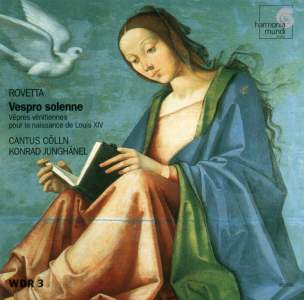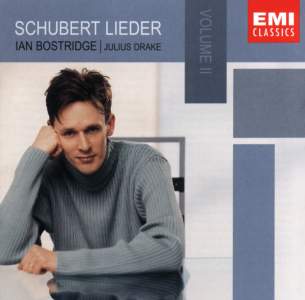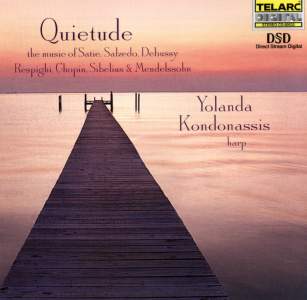Music Reviews
Classical Music - Part 28 - September, 2001
Jason Serinus
Ratings: Extraordinary Good Acceptable Mediocre Poor
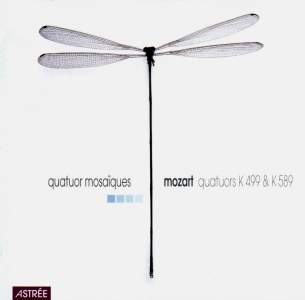
SCHUBERT: LIEDER, VOLUME II - IAN BOSTRIDGE/JULIUS DRAKE (EMI 7243 5 57141 2 1)
Performance:
Sonics:No one knew how to write a good tune better than Franz Schubert (1791-1828). His songs often were more profound than happy - frequent financial problems, the pain of confused sexuality, and the realization, starting at age 25, that he would die of syphilis, did not a happy camper make - yet their dramatic truth, heart-touching sincerity, and sheer beauty of line rarely fail to reward. Yes, Schubert wrote mainly in German, and translations are not always available; but the feelings within Schubert's melodies touch so deeply that meaning transcends the level of language presents the lyric tenor in marvelous voice.
Now in his early 30's, Bostridge retains the youthful beauty of timbre, cleanliness of attack, and impeccable diction that made his Die Sch�ne Mullerin on Hyperion so exceptional. What is controversial about his singing is how he chooses to infuse his songs with "meaning." Some artists rely primarily on volume and tone to get their feeling across, while Bostridge, an equal master in those realms, too frequently resorts to underscoring consonants, vowels, and entire words. If one were to read these texts the same way Bostridge sings them, one might be booed out of a coffee house. Yet, despite this tendency to be a bit precious, Bostridge's intelligence, sincerity, and sheer health of voice will for many transcend these critical concerns. Text and translations are happily provided, and Julius Drake provides perfect accompaniment.
MOZART: QUARTETS K. 499 & K. 589 - QUATUOR MOSAIQUES - NAIVE ASTREE E 8834
Performance:
Sonics:
If you were trying to explain what "grace" and "elegance" mean to someone who didn't speak English, what would you do? Would you read them dictionary definitions, and hope that they'd understand the other words offered as an explanation?
Checking the Merriam-Webster Dictionary ("Over 35 million sold!), and skipping those definitions which have a religious context, you would discover, for grace: "charm; attractiveness, beauty; fitness or proportion of line or expression; ease of movement." Moving on to "elegance," you'd learn that elegance is "refined gracefulness." Not very helpful if you run into trouble getting the definition of "grace" across.
Instead of offering words to explain words, you could present something from the output of what passes for Western civilization that could serve as an example of "grace" and "elegance." For such an approach, you would need look no farther than this recording of two of Mozart's final string quartets.
Listen to the Quatuor Mosaiques' treatment of the first two movements from Mozart's penultimate String Quartet, the "prussian" quartet in B-flat major K. 589. This is a mature work, composed in 1790, just one year before Mozart's death at age 35. Everything seems in perfect proportion. Each line of music seems to balance the next, the piece progressing effortlessly as though it were clear water flowing unimpeded.
The performance approaches the ideal. Nothing seems arched or forced; no musician sounds like they're trying to do anything other than simply play Mozart's music as Mozart intended it to be played. The sound of the period instruments is filled with color and life, the musical line more defined and crisp than when played on modern instruments. Everything seems so right, so perfect that one of the Merriam-Webster Dictionary's religious definitions of "grace" as "a virtue coming from God" seems entirely appropriate.
The same could be said of the Quartet in D major "hoffmeister" K. 499. Written three or four years earlier, it is slightly less mature in its expression, but a wonder nonetheless.
Mozart wrote so much music, much of it recorded so many times, that one can grow a bit blas� at the announcement of yet another Mozart disc. Yet this one sweeps the field. The playing is beautiful; the acoustic, although somewhat over-reverberant for such intimate music, nonetheless clean and filled with air. Unless your model of elegance is one of Detroit's latest designs, this recording will surely prove a winner.
ROVETTA - VESPRO SOLENNE - CANTUS COLLN, CONRAD JUNGHANEL - HARMONICA MUNDI HMC 901706
Performance:
Sonics:
Venice chose to celebrate the 1638 birth of the future "Sun King" of France, Louis XIV, with a Solemn Mass and Te Deum sung in the church of San Giorgio. Upon satisfying the religious requirements, celebrants were taken in gondolas up the Canal Grande to the palace of the French Ambassador; there, they balanced (if not totally forgot about) their spiritual offerings with several days of bull-chases, sumptuous banquets, a "young ladies' ball", theatrical, fireworks,
and sundry unmentionables.
The composer of the solemn Mass was Giovanni Rovetta, 42, the vice maestro di cappella of San Marco, and principal assistant of the great composer Claudio Monteverdi. According to the French Ambassador, "the wondrous harmony of [Rovetta's] sweet songs" pleased the audience no end. (Rovetta succeeded Monteverdi as maestro di cappella of San Marco, most famous musical establishment in Northern Italy, in 1644, retaining the position until his death in 1668).
While there is no record of exactly what music was performed at the celebration, this disc offers a close approximation of what may have been heard. Six of Rovetta's Vespers Psalms, climaxing with a Magnificat for eight voices and two violins, alternate with three of his solo motets and two short instrumental sonatas by Giovanni Battista Buonamente.
While we often experience psalms and masses of this time as weighted down with the messages of sin, repentance, and guilt, this music was intended for a celebration. Even when the words are heavy (e.g. "When the wicked, even mine enemies and my foes, came upon me to eat up my flesh...), the music is fairly light. Most of the time, as in the opening "Dixit Dominus" and the later "Confitebor," it offers abundant joy.The joyous aspect is heightened by the sweet, almost child-like sopranos in Cantus Colln's eight-voice ensemble, and a mellow recording whose edges seem a bit rounded off. The music doesn't equal the greatness of Monteverdi's, but the performance, as sweet as the cover graphic, brings rewards aplenty.
QUIETUDE - YOLANDA KONDONASSIS, HARP - TELARC CD-80533
Performance:
Sonics:
What is it about the harp that speaks to us so strongly? Is it its ethereal, resonant sounds; its graceful shape; its Judeao-Christian association with angels; or its frequent appearance in Busby Berkeley cinematic fantasy? Whatever the reasons, harp music has long served to soothe and uplift the spirit.
This is not just another pretty harp disc. Yolanda Kondonassis made her debut with the New York Philharmonic at age 18, and has since performed with major orchestras and at major festivals throughout the United Sates and the Far East. Kondonassis is an artist, not just someone who hits the right notes. If you play this disc on its own, especially by candlelight, rather than in the background, you will discover a wealth of emotional and poetic nuance. These are wonderful performances.
Kondanassis assembled her 17 selections with "the singular purpose of creating a consistently serene listening experience," and stimulating "one's inner realm in a way that only seems to happen when the 'everyday' part of the brain begins to quiet down." She succeeds admirably. Some of the selections, such as Erik Satie's Gnoisiennes, three of Chopin's Preludes, and Debussy's R�verie and Sarabande will be familiar from other recordings. Others, such as two selections by Salzedo, a Respighi Notturno, and a Sibelius Berceuse, are less frequently encountered. Rarely, if ever, will you hear them performed as beautifully as here. Nor, thanks to Telarc's extraordinarily rich DSD recording, are you ever likely to hear another harp disc sound as lifelike, rich and entrancing. Highly recommended.
MEDITATION: MUSIC FOR RELAXATION AND DREAMING - VARIOUS- DECCA ELOQUENCE 289467414-2
Performance:
Sonics:
There are a zillion classical compilations on the market, all earmarked as suitable for relaxation. Some of them are mellow and even; the majority, however, are carelessly, even callously compiled. Who wants to sit down to a romantic meal by candlelight, only to discover oneself thrown into a romantic sea, tossed here and there by countless orchestral swirls, ultimately drowning in a surfeit of drama?
This disc is different. Whether you wish to use it for meditation, as accompaniment to yoga, or for background for a special meal, it works.
The CD's twelve classical orchestral selections, three of which feature solo instruments, will surprise no one. Among them: Massenet's M�ditation from Thais, Mozart's Andante from Piano Concerto No. 21, Pachelbel's Canon -- to quote dance great Anna Halprin: "Why is everyone so excited about Pachelbel's Canon? We were dancing to it sixty years ago!" -- Faur�'s Pavane, the ubiquitous Satie Gymnop�die II, Mahler's Adagietto from Symphony No. 5, and Barber's Adagio for strings. Regardless, the sequencing works. It's mellow, it's even, and it's simultaneously relaxing and uplifting.
Another plus is the quality of interpretation. You can find this music lots of places; where, however, are you going to find, on a single disc that's half the price of new issues, the likes of violinist Kennedy, pianist Ashkenazy, and clarinetist de Peyer, as well as world class orchestras led by conductors the calibre of Dutoit, Blomstedt, Gavazzeni, M�nchinger, Mehta, and Marriner?
Gently recommended.
JOSHUA BELL - BERNSTEIN: WEST SIDE STORY SUITE - PHILHARMONIA ORCHESTRA/DAVID ZINMAN - SONY SK 89358
Performance:
Sonics:
Virtuoso violinist Joshua Bell, whom some refer to as a "teen heartthrob," is known to movie goers as the gifted "ghost" violinist in John Corigliano's score for The Red Violin. Young, slim, and handsome, Bell has been wisely paired by Sony with the music of the ever-popular Leonard Bernstein. But how much musical sense does the pairing make?
The disc begins with the world premiere recording of a new West Side Story Suite, arranged for violin and orchestra by William David Brohn. Quite different from the thrillingly energetic, immensely colorful, oft-performed Symphonic Dances from West Side Story, this suite grants the violin prominence as a solo voice that variously sings melodies and comments on the proceedings. While Leonard Bernstein's daughter Jamie Bernstein Thomas writes in the liner notes
that her father would have loved the idea, the reality is that a lot of her dad's brashest music must be toned down to allow the violin to be heard. It also means that, because Bell takes the place of Lenny's singers and dancers and show biz razzle dazzle, he must be able to swivel his hips, climb to the stars with Maria, and get down and dirty with the Jets. Bell, alas, even when posed in black leather jacket and tight fitting jeans, is not such an artist. He can be quite passionate in a classic romantic sense, and play a mean cadenza, but his essential nature does not seem to have Broadway
written all over it.
The other major work on the CD, Bernstein's marvelous Serenade After Plato's "Symposium," (1954), comes into direct competition with Lenny's own 1979 recording featuring Gidon Kremer and the Israel Philharmonic Orchestra (DG 447957-2). The new recording boasts better sound and excellent playing, Bernstein's version is far more brash, dynamic, and propulsive. While Zinman makes the work sound as if written by someone who couldn't decide if he was composing for the concert hall or Times Square, Lenny knows exactly how to make his own genius shine.
Bell does a fine job with Brohn's arrangements of "Lonely Town" and "New York, New York" from On The Town. Rounding out the disc is John Corigliano's most successful arrangement of "Make Our Garden Grow" from Candide, its romantic passion perfectly suited to Bell's musicianship.
A MARC BLITZSTEIN SONGBOOK - ORIGINAL CAST RECORDINGS OC 4441 (HTTP://WWW.ORIGINALCASTRECORDS.COM)
Performance:
Sonics:
Although Mark Blitzstein (1905-1964) is best known for his translation and adaptation of Kurt Weill's The Threepenny Opera, he wrote any number of highly political, left-leaning vocal works that deserve your attention. According to Aaron Copland and Leonard Bernstein, Blitzstein virtually invented American opera in the vernacular. Bernstein in particular was quite influenced by Blitzstein's music, and dedicated his Trouble in Tahiti to him.
This CD, devoted entirely to Blitzstein's vocal works, was co-produced by Leonard Lehrman. In 1978, Lehrman's completion of Blitzstein's Idiots First won the first Off-Broadway Opera Award. Twenty-three years later, Lehrman has just edited Volume 2 of Boosey & Hawkes' Marc Blitzstein Songbook, and published the completion of Blitzstein's opera Sacco and Vanzetti, originally commissioned for the Metropolitan Opera.
This CD, alas, is a mixed blessing. On the plus side, it contains 13 first recordings, including seven completions, two first complete recordings, and one reconstruction. These are drawn from Blitzstein's The Cradle Will Rock (1936), No For An Answer (1941), Regina (1949), Reuben Reuben (1955), Juno (1959), Idiots First (1963-1973), and Sacco and Vanzetti (1959-2001). Alas, the 19 selections are compromised by variable singing and piano accompaniment set so far in the background as to make a full appreciation of Blitzstein's melodic gifts a near impossibility. An important means for whetting one's appetite, but far from satisfying.
- Jason Serinus -� Copyright 2001 Secrets of Home Theater & High Fidelity
Return to Table of Contents for this Issue.



